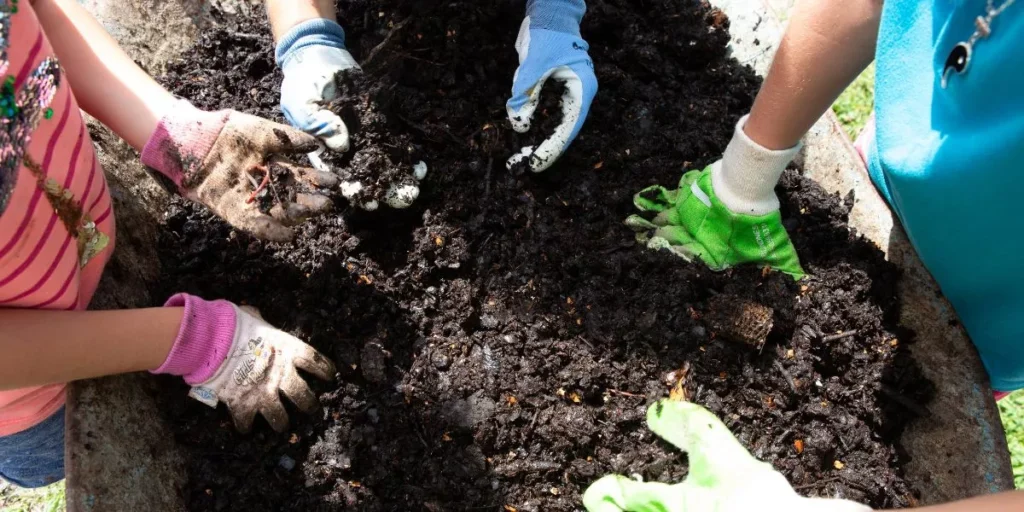
Composting serves as the backbone of successful organic gardening, fostering a harmonious relationship between your plants and the environment. Through the process of composting, you not only enrich your soil but also cultivate a self-sustaining ecosystem within your garden. The magic of compost lies in its ability to transform kitchen scraps and yard waste into a powerhouse of nutrients for your plants. As you witness the transformation taking place in your compost pile, you’ll start to see the profound impact it can have on your garden’s vitality.
Benefits of Composting in Gardening
Composting boosts soil fertility naturally, enhancing plant growth and reducing the need for chemical fertilizers. By adding compost to your garden, you’re introducing a rich source of organic matter that improves soil structure, water retention, and nutrient levels. This means healthier plants that are more resistant to pests and diseases, ultimately leading to higher yields in your garden.
Furthermore, composting helps in reducing greenhouse gas emissions by diverting organic waste from landfills where it would release harmful methane gas. Instead, through composting, this organic matter breaks down aerobically, producing carbon dioxide which is much less damaging to the environment.
In addition to environmental benefits, composting is a cost-effective way to manage garden waste and create a sustainable cycle of nutrients for your plants. By recycling kitchen scraps, yard trimmings, and other organic materials, you aren’t only improving your garden but also contributing to a greener, healthier planet.
Composting Techniques for Organic Gardens
Enhance your organic gardening practices by implementing effective composting techniques to enrich your soil and promote plant growth. Start by creating a compost pile with a good balance of green materials, like kitchen scraps and grass clippings, and brown materials, such as dried leaves and cardboard. Make sure to chop or shred larger items to speed up the decomposition process.
Turning the compost regularly will help aerate the pile, allowing beneficial microorganisms to thrive and break down the materials faster. Aim to keep the compost moist but not soggy, as proper moisture levels are crucial for decomposition. Covering the pile with a tarp during heavy rain can prevent it from becoming waterlogged.
Layering different types of materials in the compost bin can also aid in decomposition. For example, alternate between nitrogen-rich materials like vegetable peels and coffee grounds, and carbon-rich materials such as straw and newspaper. This layering technique helps create a balanced environment for microorganisms to efficiently break down the organic matter. By mastering these composting techniques, you can produce nutrient-rich compost to nourish your organic garden and support a thriving ecosystem.
Utilizing Compost to Improve Soil Health
To enrich your soil and promote plant growth effectively, utilize compost as a valuable resource. Compost is a powerhouse of nutrients that can enhance soil health in your organic garden. When incorporated into the soil, compost improves its structure, making it more airy and better at retaining moisture. This, in turn, creates an optimal environment for beneficial soil organisms like earthworms and microorganisms to thrive, supporting overall soil health.
Additionally, compost helps balance soil pH levels, ensuring that your plants have access to essential minerals for growth. By adding compost to your garden beds, you can provide a slow-release source of nutrients that feed your plants steadily throughout the growing season. This natural fertilizer reduces the need for synthetic chemicals, promoting a healthier ecosystem in your garden.
Regularly incorporating compost into your soil not only boosts plant growth but also helps suppress diseases and pests, creating a more sustainable and productive gardening environment. So, make the most of this organic treasure to cultivate thriving plants and a flourishing garden.
Environmental Impact of Composting in Gardening
Maximizing the environmental benefits of composting in your gardening practices can lead to a more sustainable and eco-friendly approach to soil enrichment. By composting kitchen scraps, yard waste, and other organic materials, you not only reduce the amount of waste that ends up in landfills but also help lower greenhouse gas emissions. When organic matter breaks down anaerobically in landfills, it produces methane, a potent greenhouse gas that contributes to climate change. Composting aerobically, on the other hand, allows organic matter to decompose naturally, reducing methane emissions and returning valuable nutrients to the soil.
In addition to reducing greenhouse gas emissions, composting helps improve soil health and structure. The rich humus created through composting acts as a natural fertilizer, promoting healthy plant growth and increasing soil water retention. This means you can water less frequently, saving water in the long run. Furthermore, composting reduces the need for chemical fertilizers and pesticides, which can have harmful effects on the environment and human health. By incorporating composting into your gardening routine, you can make a positive impact on the environment while nurturing your plants naturally.
Garden














